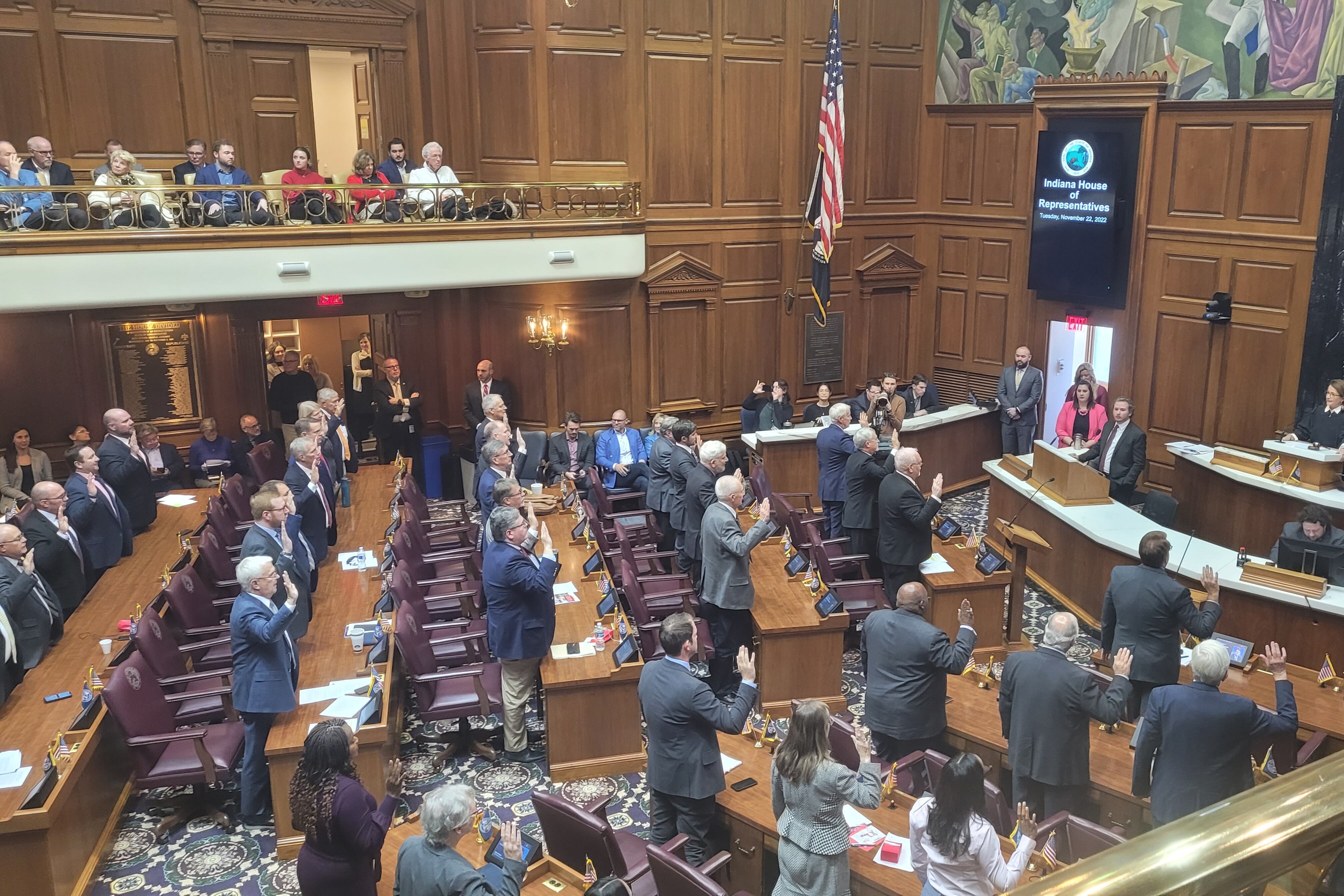Indiana’s 2023 legislative session is under way, and state legislators have introduced more than 100 new education bills and bills impacting schools and students. For the latest Indiana education news, sign up for Chalkbeat Indiana’s free newsletter here.
A new bill in Indiana would establish accounts for students to pay for career training outside their schools, as part of House Republicans’ campaign to “reinvent” high school and align it more closely to the workforce.
House Bill 1002 creates career scholarship accounts similar to Indiana’s education savings accounts, which grant eligible families a portion of their school’s K-12 tuition support dollars to seek special education services and therapies from providers outside of their school district.
Like the education savings accounts, the amount that each career scholarship student would receive to pay for apprenticeships, coursework, or certification is based on a calculation of the state dollars that their school receives. But it’s not immediately clear whether career savings accounts would also be funded in part by state tuition support dollars.
The bill, authored by GOP Rep. Chuck Goodrich of Noblesville, aims to fulfill the promise that House Republicans made last November to change the high school experience in a way that prioritizes workforce experiences. It’s a recurring theme for the state, which already has several career-focused tracks for students, like local pathways to graduation that lead students to careers in certain industries.
HB 1002 would make further changes to allow students to apply funds from the 21st Century Scholars program — a free college program for students from low-income families — to apprenticeship programs as well.
“Whether our high school graduates want to further their education or enter the workforce, they’ve got to be ready to hit the ground running,” Speaker Todd Huston, a Republican from Fishers, said in a statement. “We need to align our local employers’ needs with our students’ needs.”
Under HB 1002, students in grades 10-12 would need to create a postsecondary plan in order to qualify for the scholarship accounts, which can only be used to pay for courses or apprenticeships that align with that plan.
The Indiana Department of Education would be tasked with approving the courses and tracks available to students, as well as determining the grant amount for each course. Under the bill’s provisions, the department would also need to adopt new diploma requirements by 2024.
HB 1002 also requires high schools to hold career fairs, and prohibits schools from receiving money for career and technical education for students who are already enrolled in the career scholarship program.
The bill, filed on the Thursday deadline for House legislation in the 2023 session, has been referred to the House Education Committee.
Aleksandra Appleton covers Indiana education policy and writes about K-12 schools across the state. Contact her at aappleton@chalkbeat.org.





